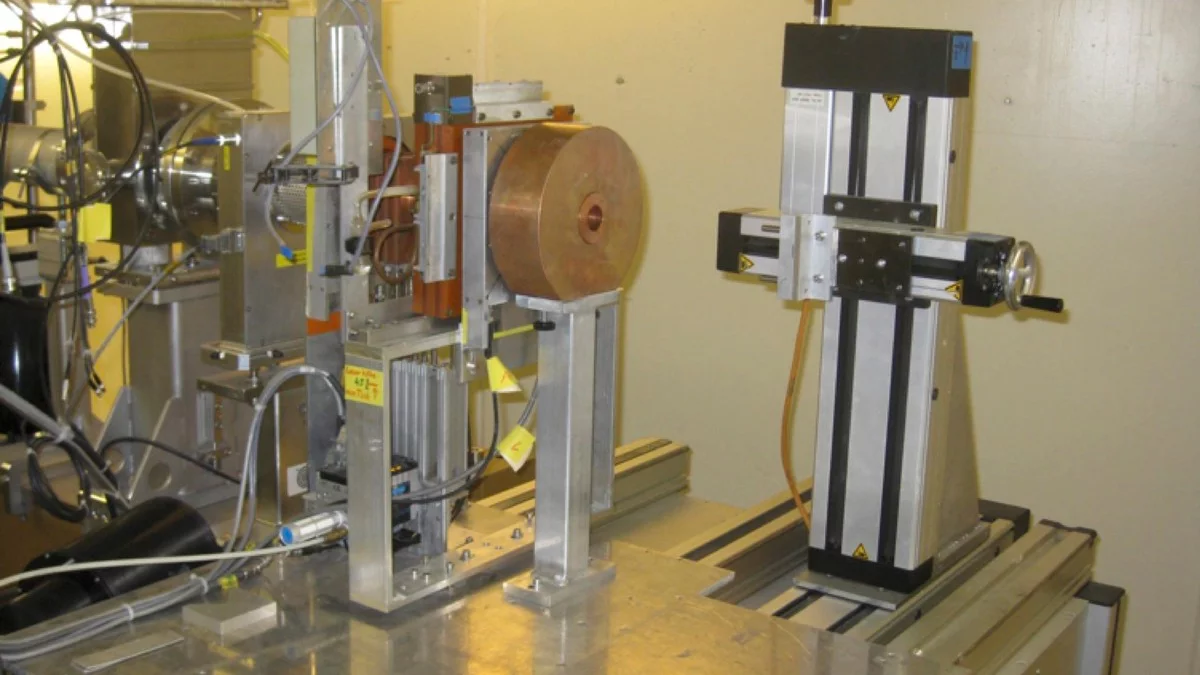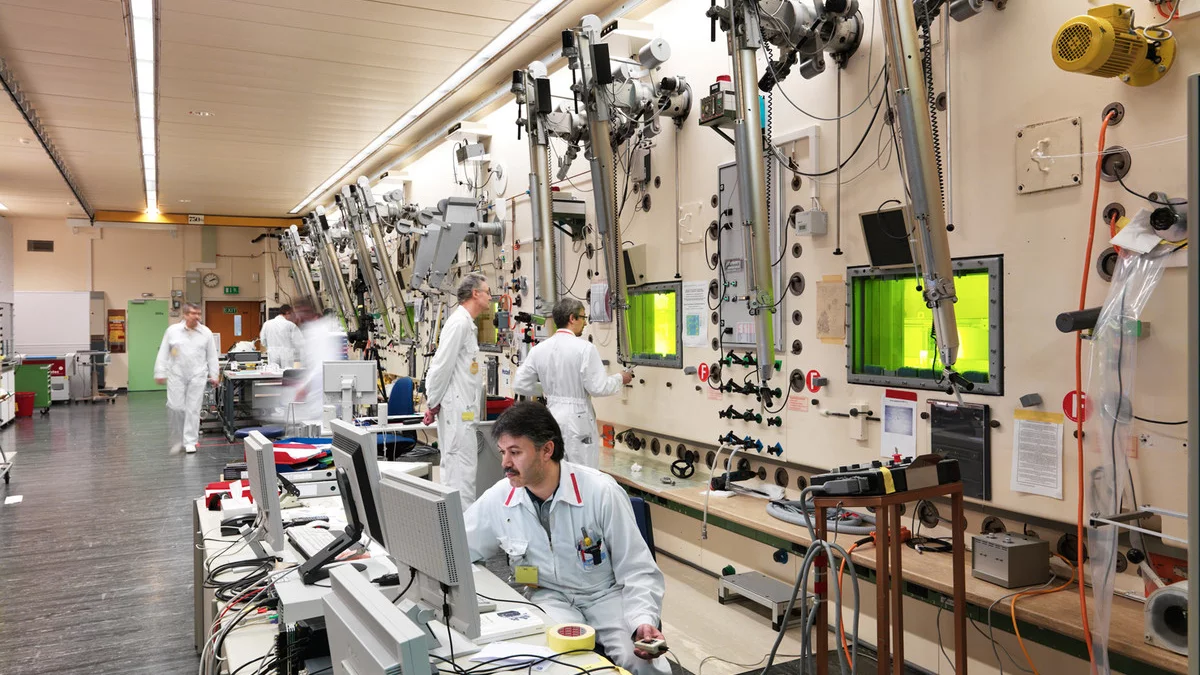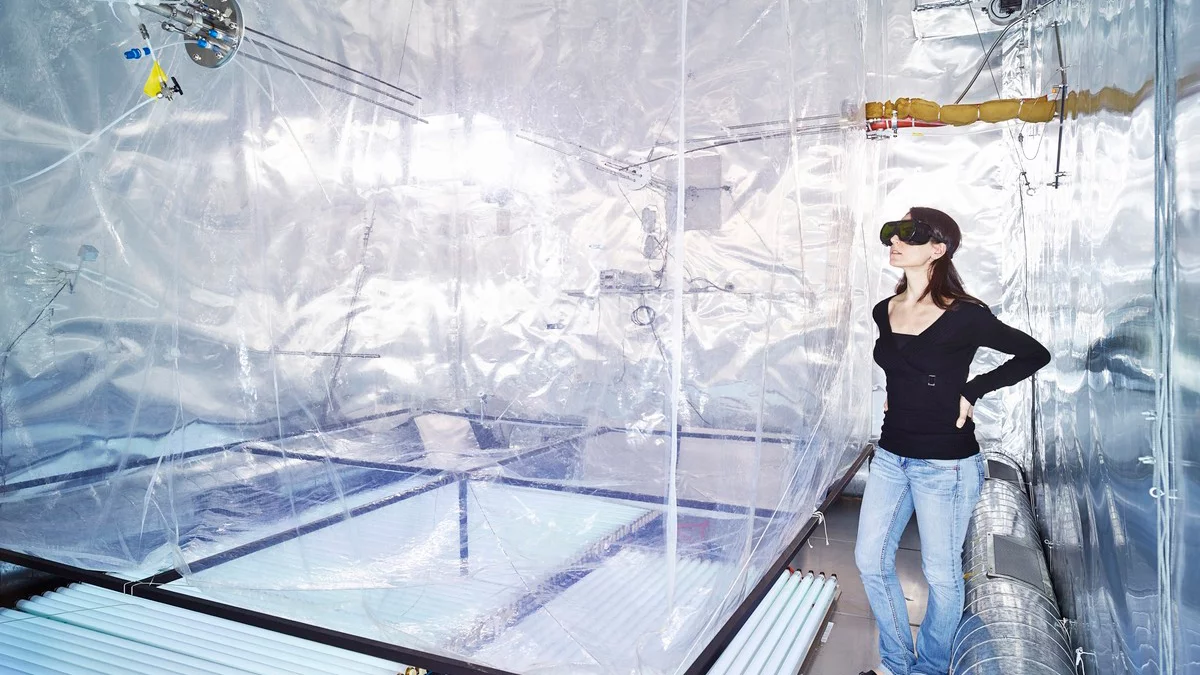In addition to the Large Research User Facilities, further PSI laboratories are also open to external users.
The Proton Irradiation Facility (PIF)
The Proton Irradiation Facility enables users to determine radiation hardness of modern semiconductors as well as characterize instrument response towards proton beams. The facility is designed in a user friendly manner and is commonly available. The PIF can provide mono-energetic beams as well as it enables generating of realistic proton spectra encountered at any potential orbit in space. Therefore the facility is extensively used by both the space community as well as research teams in other disciplines. The PIF is a member of the European Component Irradiation Facilities (ECIF) supported by the European Space Agency (ESA). It has been primarily implemented to investigate:
- Radiation hardness of the new electronic products
- Single Event Upsets (SEU) and Latch-ups (SEL) of electronic components
- Properties of radiation detectors for space and laboratory applications
- Basic mechanics of radiation effects in semiconductors
- Space radiation environment by on-earth simulations
The proton environment, either in space or accelerator based laboratories, can have a detrimental effect on semiconductor components and other materials. The ability to simulate this environment enables projects to take this hazard into consideration in the design stage. The PIF offers a wide range of applications feasible due to its elementary design aspects assuring:
- Broad range of energies and intensities of the proton beam
- Experiment adaptable monitoring of flux and dose
- Fast and uncomplicated experimental setup
- Transparent operating procedure
- User friendly data acquisition system
- Flexibility towards customer needs
The Hot Laboratory (HOTLAB)
Radioactive substances are produced and/or used in basic research (e.g. particle accelerators), in industrial (e.g. nuclear reactors) and medical applications (e.g. radiopharmaceuticals). The PSI HOTLAB is the single Swiss installation allowing the safe and secure handling as well as examination of highly radioactive substances and components.
The handling and investigation of highly radioactive material requires remote controlled operation and dedicated instrumentation to ensure both the confinement of the radioactivity and the safety of the operators. During its 50 years of operation, the PSI HOTLAB has continuously upgraded its basic infrastructure and its analytical tools. Actually, with its well-educated scientific and technical staff, its analytical infrastructure and its capability to prepare small specimens for further investigation on other PSI large research facilities (SINQ, SLS), the HOTLAB is a key facility for the Nuclear Energy and Safety department, supports the other departments at PSI and offers a unique and efficient platform for the Swiss and international research community.
The PSI HOTLAB has also a user lab function and provides the technical infrastructure and a broad spectrum of services, methods and instrumentation for the manipulation, characterisation and analysis of radioactive materials:
- Hot cell line for sample preparation, material testing and dismantling of large components from the nuclear fuel cycle or accelerator systems
- Specimen preparation from irradiated materials incl. micro-specimens for use in non- or light-shielded instrumentation
- Radiochemical analysis
- Microstructure analysis (optical and electron microscopy)
- Gamma, X-ray and Mass spectrometric techniques for the elemental and isotopic analysis of gaseous, liquid and solid samples incl. surface analytical techniques
- Education of academic and technical junior staff members for the research community and nuclear industry
The Smog Chamber
The PSI Simulation Chamber for Atmospheric Chemistry (PSI-SCAC) is a medium sized indoor chamber. It is a tool to investigate chemical and physical processes related to air pollution under controlled conditions. We perform studies on oxidation mechanisms of gaseous pollutants, particle nucleation and secondary organic aerosol formation and ageing.
Specific projects and questions addressed so far and at present include:
- Investigation of oligomer formation in SOA
- Determination of SOA yields from various precursor compounds
- Investigation of the influence of organics and sulfuric acid on nucleation
- Investigation of cloud forming potential of SOA
- Intercomparison of instruments
- Investigation of composition, gas/particle partitioning and volatility of SOA
- Evaluation of photochemical mechanisms
- Investigation of SOA formation from diesel, wood burning and other anthropogenic emission sources
Electron Microscopy Facility (EMF)
The electron microscopy facility at PSI is presently sustained by three divisions, BIO (chair), NES and ENE. With its three transmission electron microscopes, a focused ion beam instrument and plenty of preparation tools it offers a direct access to electron microscopic techniques highly required in their fields of research (biological as well as materials science samples). The facility is unique within Switzerland as it also allows the investigation of radioactive materials.
We provide opportunity of training and service for the members. Non-members can have an access, when instruments are available. For non-members the use of the instruments is charged on an hourly basis.



